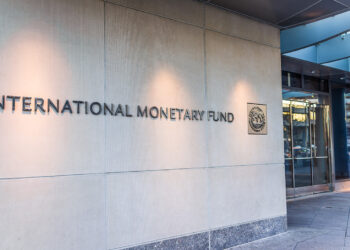The Network of Central Banks and Supervisors for Greening Financial Services (NGFS) has developed the modelling and a guide with an aim to provide a common framework for analysing climate risk to economies and financial systems.
The network consists of 66 members across five continents, including the Reserve Bank of Australia and the Reserve Bank of New Zealand.
The climate scenarios have explored the transition and physical impacts of climate change under varying assumptions, under three different models: “orderly”, where early and ambitious action is taken to a net-zero carbon dioxide emissions economy; “disorderly”, where action is late, disruptive or unanticipated and “hot house world”, with limited action leading to significant global warming and hiked exposure to physical risk.
In the orderly scenario, net-zero carbon emissions are achieved before 2070, giving a 67 per cent chance of limiting global warming to below 2 degrees Celsius. But economic impacts are tipped to be relatively small, with an estimate of 4 per cent GDP loss by the end of the century.
At the other end of the spectrum, a hot house world, is where current policies are preserved and emissions grow until 2080 leading to 3 degrees Celsius or more of warming and severe physical effects, such as a higher sea-level rise.
This is projected to result in up to 25 per cent GDP loss by 2100, but the NGFS noted the estimate does not account for all sources of risk, including sea-level rise, low probability high impact events and extreme societal changes such as migration and conflict.
“As a result, damages in this scenario will be larger than models suggest, particularly in regions with lower resilience and capacity for adaptation,” slides on the scenarios read.
‘Sitting on our hands… will expose Australia’
Investor Group on Climate Change chief executive Emma Herd weighed in, saying the scenarios demonstrate climate change is a “systemic economic threat” that will undercut prosperity and job security.
She also commented financial services companies will be subject to tougher oversight on disclosure standards.
“Financial regulators are now responding to this economic risk, as are institutional investors who are increasingly wary of carbon-intensive assets and looking for opportunities,” Ms Herd said.
“A transition is inevitable. Early action reduces the cost of the transition to net-zero emissions by 2050 substantially and helps avoid severe and irreversible impacts from climate change itself.”
She added Australia will require a long-term policy framework and a commitment to net-zero emissions by 2050.
“The alternative is sitting on our hands which will continue to expose Australia to decarbonisation efforts across the world while not gaining access to new opportunities that will stem from modernising the economy,” Ms Herd said.
“These scenarios will underpin efforts by the Reserve Bank of Australia and financial supervisors to provide a consistent basis for companies to disclose their climate risk exposure.
“Companies should no longer be able to [cherrypick] climate scenarios that suit their preferred business strategy and instead make clear climate risk assessments that allow investors to determine their true value.”
She added governments should also apply the scenarios to their own policy decisions, including COVID-19 recovery efforts.
Effects on monetary policy
Further to the modelling set, the NGFS has also published a report examining the possible effects of climate change on monetary policy, based on a review of literature and expert analyses, as well as a report laying out its resulting research priorities on macro-economic and financial stability impacts.
The body stated globally, central banks are increasingly focusing on the potential impact of climate change on price stability and its implications for monetary policy.
Climate change could blur a central bank’s assessment of its room for manoeuvre and it may affect the transmission channels of monetary policy, the monetary policy report stated.
“If an economy, whose [natural interest rate] is already low, is struck by more frequent, severe climate-induced natural disasters, this could imply, all else being equal, that the central bank is more likely to hit the zero – or effective – lower bound on policy interest rates,” the report stated.
“This would reduce policy space for conventional tools.”
It also stated there is “ample room” for further work from central banks on developing adequate modelling tools that account for climate risk and for gathering relevant data.
Bank of England executive director and chair of the NGFS Macrofinancial workstream Sarah Breeden commented the publications are important addition to central banks’ toolkits, by helping to size “potentially catastrophic risks” to drive decisions.
“This is however only our first step on that journey,” Ms Breeden said.
“We welcome engagement from all as we further develop this vital work.”
The NGFS has committed to continuing development on the scenarios to make them more comprehensive, inviting feedback from stakeholders.
It stated areas of focus will include expanding the scenario modelling to explore further dimensions of the risks, improving regional coverage and sectoral granularity, calculating probable losses from climate impacts, expanding the set of macro-economic outputs and improving the NGFS scenario database and portal.







